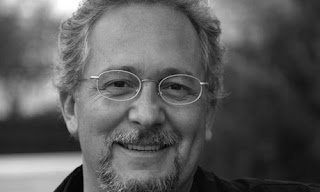 Hector Abad's tribute to his father, 'the communist doctor' murdered by Colombian paramilitaries in 1987, is warm, witty and moving.
Hector Abad's tribute to his father, 'the communist doctor' murdered by Colombian paramilitaries in 1987, is warm, witty and moving.In 1987 the Colombian novelist Hector Abad was phoned by a journalist with some startling news: "They're saying you've just been killed." He knew instantly that the rumours must refer to his father, whose name he shared and whose body was lying at that very moment in a pool of blood a few blocks away. Doctor, teacher and public health activist, Hector Abad senior was 65 years old when rightwing paramilitaries caught up with him on a Medellín street. The doctor had been on his way to pay his respects to a colleague murdered two days earlier, and was accompanied by an ex-student whom the killers finished off minutes later. Three speakers who paid tribute to the murdered doctor were themselves later killed. The son went into exile and survived.
"For almost 20 years I have tried to be him there, facing death, at that moment," Abad writes in a memoir that is partly a portrait of a singular father and partly a wider landscape of a beautiful country, full of potential, tearing itself to pieces. The title is from a line of poetry by Borges: "Already we are the oblivion we shall be" – words scribbled down by Abad's father on the morning of his murder. In writing the book, Abad explains, he hoped this oblivion might be "deferred", if only for a moment.
There is nothing here of the muted awkwardness described in so many writerly accounts of the father-son relationship. "I loved my father with an animal love," Abad writes. "I liked his smell and also the memory of his smell on the bed when he was away on a trip. I liked his voice, I liked his hands, his immaculate clothes and the meticulous cleanliness of his body."
The fathers of Blake Morrison and Michael Bywater, to take two other "father memoirs", were also doctors. Their sons record their sly manoeuvring in the social pecking order, men secure in the respectability conferred on public health in Britain since the 19th century. A continent away, the likes of Abad's father, while comfortably off, had no such tradition to fall back on. For Colombian conservatives in the 1960s and 1970s, demands for universal access to food, clean water and sanitation looked like subversion.
Abad recalls his father's tour of the children's hospital in Medellín when he was a child. At each bed he would ask, "'What's wrong with this child?' Then he would answer his own question: 'He's hungry.' And a bit further on: 'What's wrong with this child?' 'She's hungry … the same thing, nothing but hunger. Yet an egg and a glass of milk a day would be enough to keep these children from being here.'"
The writing is as warm, generous and witty as the man it portrays, and in his survey of Colombia's past ills Abad manages to write with the mellow thoroughness of an anger digested over many years. "Christian in religion, Marxist in economics and a liberal in politics," was Abad senior's creed, winning him contempt from the extreme left, hatred from the country's selfish, myopic conservatives and the spittle-flecked ire of the church hierarchy. A religious radio programme lambasted "the communist doctor" for his belief that the poor might also be allowed to have life before death.
Religion is an integral part of the story. As a young child, Abad spent the day in the company of a nun listening to the gory martyrdom of the saints; when his father returned in the evening, the two would pore over encyclopaedias. Abad's household was Colombia's ideological struggle in miniature, a playing-out of the Old World clash between Torquemada and Diderot that continued up to Dr Abad's violent death, and beyond. The then archbishop of Medellín, Alfonso López Trujillo (who a few years ago told the BBC that condoms let through the HIV virus), tried to prevent mass being said at the funeral, to the anguish of Abad's deeply pious mother and sisters.
Abad's fellow countryman Gabriel García Márquez famously began his novel Chronicle of a Death Foretold with the words "On the day they were going to kill him..." In Oblivion Abad employs a similar effect, only revealing the details of the murder towards the end of the book, its inevitability making the almost artless outpouring of filial love all the more unbearable.


